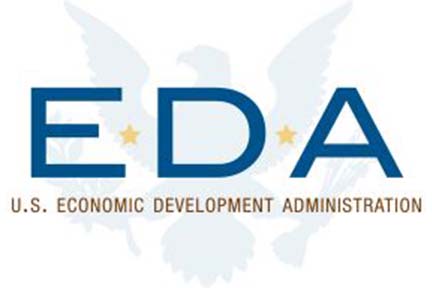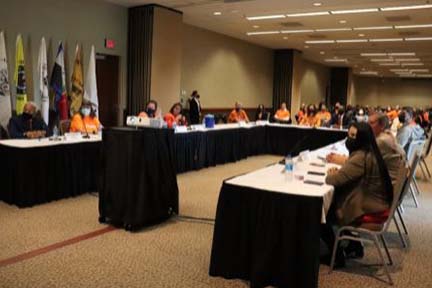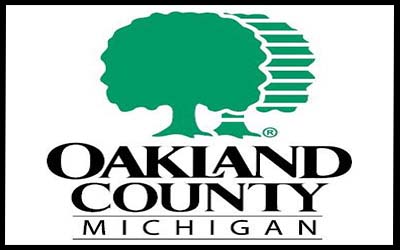
U.S. Economic Development awards $2 million in grants

FOR IMMEDIATE RELEASE October 1, 2021 Contact: Kathleen Achtenberg, achtenbergk@
Gov. Whitmer announces U.S. Economic Development Administration awards $2 million in grants to support high-tech startups Across the State
LANSING, Mich. – Today, Governor Gretchen Whitmer joined the Michigan Economic Development Corporation to announce the U.S. Economic Development Administration (EDA) is awarding more than $2 million to three SmartZones in Michigan to support programs that fuel innovation and tech-based economic development.
“In Michigan, we are laser-focused on supporting small businesses and providing critical access to capital to support growth and ensure long-term economic opportunity in the state,” said Governor Gretchen Whitmer. “Today’s grants will leverage private funds to create good-paying jobs and grow emerging businesses around the state, helping us usher in a new era of prosperity for Michigan.”
The grants were awarded to Troy-based Automation Alley’s Michigan Industry 4.0 Accelerator ($1.3 million), Innovation Marquette Enterprise Corporation ($305,465) and TechTown Detroit ($400,000).
U.S. Assistant Secretary of Commerce for Economic Development Alejandra Y. Castillo announced the “Build to Scale” grantees yesterday at TechTown Detroit. Representatives from MEDC, the Michigan Department of Labor and Economic Opportunity and Automation Alley also joined the event. The “Build to Scale” program is administered annually by the U.S. Economic Development Administration. The program aims to accelerate technology entrepreneurship by increasing inclusive access to business support and startup capital.
“Michigan is excited to work with the U.S. Economic Development Association to take advantage of these tremendous grant opportunities that will allow our communities to build back better,” said Susan Corbin, Michigan Department of Labor and Economic Opportunity director. “These grants will allow us to focus on equity and grow local programs and services that not only help communities recover from the hardships brought on by the pandemic, but also prepare them to be resilient against future economic shock.”
The grants were awarded in two categories: The Venture Capital Fund, which seeks to leverage regional strengths to accelerate innovation and job creation through high-growth technology entrepreneurship and fostering inclusive access to proven entrepreneurship models. The Capital Challenge increases access to capital in communities where risk capital is in short supply by providing operational support for early-stage investment funds, angel capital networks, or investor training programs that focus on both traditional and hybrid equity-based models.
Automation Alley received a Venture Capital grant which it will use to expand its Michigan Industry 4.0 (MI4.0) Accelerator, powered by Centrepolis Accelerator at Lawrence Technological University and Lean Rocket Lab in Jackson. The MI4.0 aims to attract best-in-class advanced manufacturing technology companies from around the world and find pathways for these firms to provide a meaningful impact to our domestic value chain, using Michigan’s existing manufacturing base as a gateway catalyst.
“There is an urgent need for manufacturers to understand and adopt Industry 4.0 technologies, and a great risk in not doing so,” said Tom Kelly, Executive Director and CEO of Automation Alley. “This national funding award from the Build to Scale Program will allow Automation Alley’s Industry 4.0 Accelerator to bolster our region’s competitive position in the Fourth Industrial Revolution by amplifying startups’ efforts to fortify and expand Michigan’s Industry 4.0 ecosystem.”
TechTown Detroit received a Capital Challenge grant that it will use, in partnership with the Angel Capital Association, VentureWell, and Ann Arbor SPARK, to recruit and train 200 high-net-worth individuals from Michigan who are underrepresented in the angel investor community and activate their potential as investors. TechTown’s goal is to support 50 projects, totaling $34.7 million in early-stage capital.
“Expanding the pool of angel investors to include more people who intrinsically understand the experience of founders of color and women is critical to unlocking more high-risk capital and creating a more robust innovation ecosystem,” said Ned Staebler, president and CEO of TechTown Detroit.
Innovate Marquette also received a Capital Challenge grant, which will be matched with $306,446 in local funds. Innovate Marquette plans to use the new resources for the Make it Marquette Start to Scale (Marquette STS) project, which will leverage educational, economic development and capital investor partnerships. Together, with project partners, Marquette STS will educate local angel investors about scalable tech investment opportunities and connect to state, regional and national venture capital (VC) networks.
“Innovate Marquette is honored to receive this win for the Marquette community, however, it’s not an award we accept singlehandedly. Without support and collaboration from all of our economic development partners, championing this grant would not have been possible,” said Joe Thiel, CEO of Innovate Marquette. “Rural innovation begins when longtime residents who have built the foundation of a community work in parallel with those who have a vision for a regenerative economic future. That’s what we are seeing in Marquette today; it’s pivotal and it’s just the beginning.”
The project is also designed to be 100-percent sustainable after the proposed three-year project timeline.
Today’s news builds on the Sept. 16 announcement that the U.S. Small Business Administration also awarded grants to the Centrepolis Accelerator, BBCetc in Chelsea, and TechTown Detroit through its the Growth Accelerator Fund Competition and Small Business Innovation Research Catalyst competition. The grants are intended to support start-up accelerators and incubators working with underrepresented entrepreneurs.
“Michigan’s entrepreneurial support system is extremely robust, as evidenced by these federal grants, which will further empower our business incubators to support Michigan’s entrepreneurs – ultimately leading to more jobs and a creating a stronger, more inclusive economy in Michigan,” said Fred Molnar, vice president of Entrepreneurship & Innovation at the MEDC. “Congratulations to the teams at Automation Alley, Innovate Marquette, and TechTown Detroit, as well as BBCetc and Centrepolis, on receiving these grants that will help Michigan’s small business and entrepreneurs find success, and will help lead the way in Industry 4.0 technologies and workforce needs.”
“EDA is proud to support this year’s ‘Build to Scale’ grantees as they fuel regional innovation hubs throughout the country,” Castillo said. “Investing in scalable startups and creating access to capital will yield more economic opportunities and support the next generation of industry-leading companies. This is the type of vital work that President Biden’s build back better agenda promises to continue to support.”
About the U.S. Economic Development Administration (www.eda.gov) The mission of the U.S. Economic Development Administration (EDA) is to lead the federal economic development agenda by promoting competitiveness and preparing the nation’s regions for growth and success in the worldwide economy. An agency within the U.S. Department of Commerce, EDA invests in communities and supports regional collaboration in order to create jobs for U.S. workers, promote American innovation, and accelerate long-term sustainable economic growth.
About Michigan Economic Development Corporation (MEDC) The Michigan Economic Development Corporation is the state’s marketing arm and lead advocate for business development, job awareness and community development with the focus on growing Michigan’s economy. For more information on the MEDC and our initiatives, visit www.MichiganBusiness.org
|








